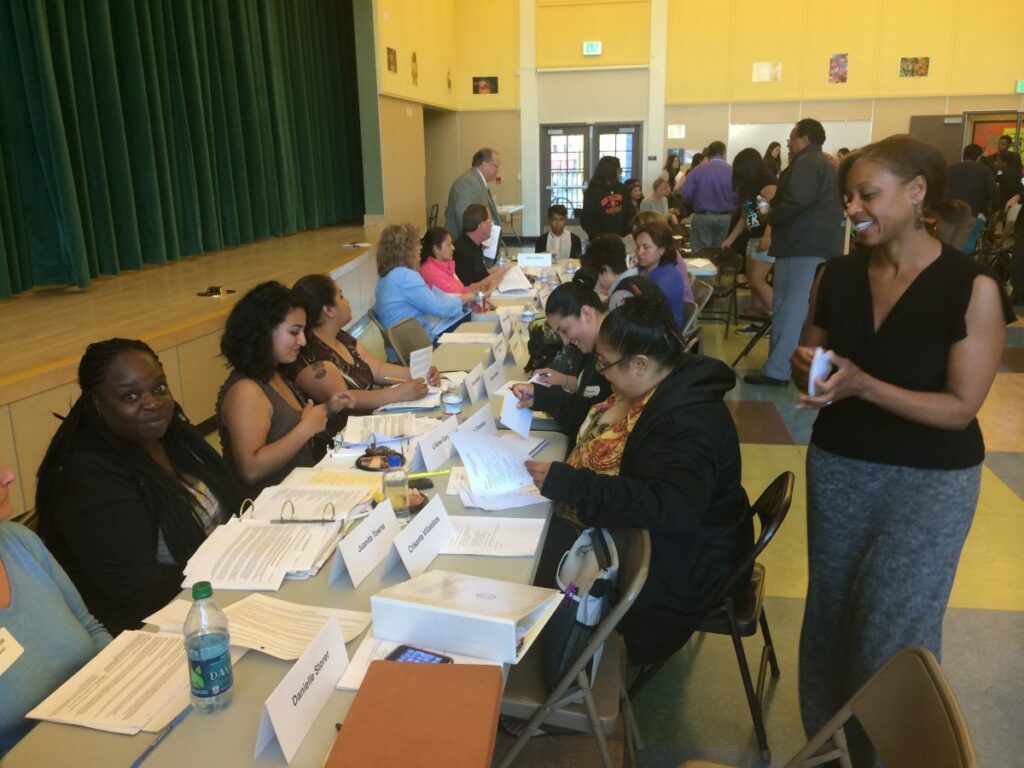Four years ago, a team of researchers embarked on a journey to follow the implementation of California’s landmark change in how it funds public schools: The Local Control Funding Formula, or LCFF.
Daniel Humphrey
Most recently, we have studied three districts — Anaheim Union High School District, Palmdale School District north of Los Angeles and San Mateo-Foster City School District south of San Francisco — and their noteworthy efforts to utilize the flexibility of the new law and its emphasis on local decision making to improve teaching and learning in their districts.
As our report details, we ultimately found that all three districts relied on a common strategy that was intimately connected to all of their improvement efforts: broad and meaningful community engagement focused on parents, principals, teachers, students and other core groups.
The funding formula requires districts across the state to engage the community as part of their Local Control and Accountability Plan, or LCAP, development process, but each of these three districts moved beyond the letter of the law.
- Palmdale School District used a strategic planning process that included teachers, principals, students, parents and community members to build a consensus around how best to improve student outcomes. The engagement strategy was rooted in transparency, data sharing and celebration of cultural diversity. The district brought in outside consultants who helped them with engagement efforts in order to build broad support for their improvement efforts.
- Anaheim Union High School District placed the implementation of the Common Core standards and instructional improvement at the center of all of the district’s work. An intensive effort to engage multiple stakeholders, including a Parent Leadership Academy and guided parent tours of classroom instruction, produced a consistent understanding of the district’s instructional vision by district officials, principals, teachers, parents and community leaders, and facilitated the implementation of new standards across the district.
- San Mateo Foster City School District’s implementation strategy expanded opportunities for each of its schools to make decisions about the allocation of money and personnel. The district trained each principal on how to lead a discussion about their school’s needs with teachers, staff, parents, community members and students. The district shifted control of two-thirds of its supplemental funds received through the LCFF to the school level (with district guidance and oversight), which increased stakeholder buy-in for both school-level and district-level improvement strategies.
Much of the conversation about LCFF implementation has rightly focused on the allocation of supplemental and concentration grants to increase supports and services to the target student groups (low-income, English learner and foster youth). Community and parent engagement has received far less attention. The experience of these three districts reminds us that engagement with these and other groups is also fundamental to the realization of the funding formula’s vision. Indeed, it suggests that community engagement is the linchpin of successful LCFF implementation.
•••
Daniel C. Humphrey is the former director of SRI’s Center for Education Policy, and is currently an independent education policy researcher and a member of the Local Control Funding Formula Research Collaborative. This commentary was co-authored by the members of the LCFF Research Collaborative: Julia Koppich, Magaly Lavadenz, Julie Marsh, Jennifer O’Day, David Plank, Michelle Hall, Laura Tobben and Jarah Blum.
The opinions expressed in this commentary represent those of the author. EdSource welcomes commentaries representing diverse points of view. If you would like to submit a commentary, please review our guidelines and contact us.
To get more reports like this one, click here to sign up for EdSource’s no-cost daily email on latest developments in education.
